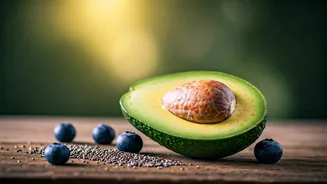Understanding Sleep Apnea
Sleep apnea is a sleep disorder defined by interruptions in breathing during the night. These pauses, lasting from a few seconds to minutes, can occur
multiple times an hour. The primary cause of sleep apnea is the relaxation of throat muscles, which obstructs the airway. This obstruction triggers a reduction in blood oxygen levels, prompting the brain to briefly wake the individual to resume breathing. This cycle of interrupted sleep results in daytime fatigue, headaches, and increased risks of high blood pressure, heart disease, and stroke. Identifying sleep apnea involves recognizing the symptoms, like snoring and daytime sleepiness, and seeking proper diagnosis and treatment from healthcare professionals. Managing sleep apnea often requires a multifaceted approach involving lifestyle changes, medical devices, and, in some cases, surgery. Understanding the nature of the condition is the crucial first step in finding solutions and improving your quality of life.
Fish: Omega-3 Benefits
Incorporating fish into your diet is a good approach to managing sleep apnea. Rich in omega-3 fatty acids, fish offers several advantages. The omega-3s found in fish have anti-inflammatory properties, which can help reduce swelling in the airways, easing breathing during sleep. Moreover, certain types of fish, especially those high in vitamin D, can improve overall sleep quality. Regular consumption of fish can indirectly aid in weight management, a critical factor, as obesity is a significant risk factor for sleep apnea. Aim for at least two servings of fatty fish like salmon or mackerel per week to maximize the benefits. Additionally, cooking fish with healthier methods, such as baking or grilling, can prevent unnecessary fat intake. It is important to remember that adding fish to your diet will need to be part of a balanced diet for the best results.
Walnuts: Sleep-Promoting Properties
Walnuts are a tasty and nutritious addition to any diet and may also assist with sleep apnea symptoms. Walnuts contain melatonin, a hormone that regulates the sleep-wake cycle. The presence of melatonin in walnuts can help improve sleep quality, which is often disturbed in people with sleep apnea. Eating a handful of walnuts before bed could potentially aid in achieving a more restful sleep. Additionally, walnuts are a good source of magnesium, a mineral vital for muscle relaxation. Magnesium can help reduce the frequency of airway obstructions during sleep by relaxing the muscles in the upper airway. Walnuts offer essential nutrients that support overall health and might indirectly benefit sleep apnea by addressing other health factors, such as heart health, linked to the condition. Enjoying walnuts as part of a balanced diet provides multiple health advantages that improve the possibility of better sleep.
Avocados: Nutrient Powerhouse
Avocados stand out as a nutritional powerhouse with benefits that may extend to sleep apnea management. These fruits are rich in magnesium and healthy fats, which promote better sleep and support overall health. As previously mentioned, magnesium helps relax muscles, potentially reducing airway obstructions during sleep. The healthy fats in avocados contribute to reducing inflammation in the body. Reducing inflammation may help reduce the severity of sleep apnea symptoms. Furthermore, avocados' high fiber content supports stable blood sugar levels, preventing nighttime blood sugar spikes that can disrupt sleep. Incorporating avocados into your diet provides several health advantages, potentially assisting sleep apnea management through various mechanisms. Using avocados in recipes can be a pleasant and advantageous strategy to manage the symptoms of sleep apnea and promote a healthy lifestyle.
Cherries: Melatonin Boost
Cherries, particularly tart cherries, are another food that can help with sleep apnea. These fruits are naturally high in melatonin, the hormone that regulates sleep-wake cycles. Consuming cherries or drinking cherry juice before bed can improve sleep quality, potentially reducing the daytime fatigue commonly associated with sleep apnea. The anti-inflammatory properties of cherries are another advantage, as they may help reduce the inflammation in the airways. This could contribute to a reduction in the severity of apnea episodes. Tart cherries' antioxidant content also supports overall health. This includes the possibility of reducing other health issues linked to sleep apnea. Adding cherries to your diet is a straightforward way to harness their sleep-promoting properties and support comprehensive health. Their natural melatonin content provides a targeted strategy for enhancing sleep, which is essential for managing sleep apnea.
Soy: Potential Benefits
Soy, a versatile food widely used in various culinary traditions, has several potential benefits for those with sleep apnea. It is a source of essential nutrients and can contribute to better overall health, which may indirectly help manage sleep apnea symptoms. Soy contains isoflavones, which may have anti-inflammatory effects and could help reduce inflammation in the airways, thus supporting easier breathing during sleep. Some studies suggest that soy can contribute to cardiovascular health, a factor frequently affected by sleep apnea. Furthermore, soy protein can aid in weight management. Weight management is essential since excess weight is a significant risk factor for sleep apnea. Although more research is needed to determine the exact relationship between soy and sleep apnea, incorporating soy into a balanced diet can support overall well-being. It also targets some of the underlying factors connected to this sleep disorder. Soy can be incorporated into various meals, offering a flexible and potentially helpful component of a comprehensive strategy for managing sleep apnea.























